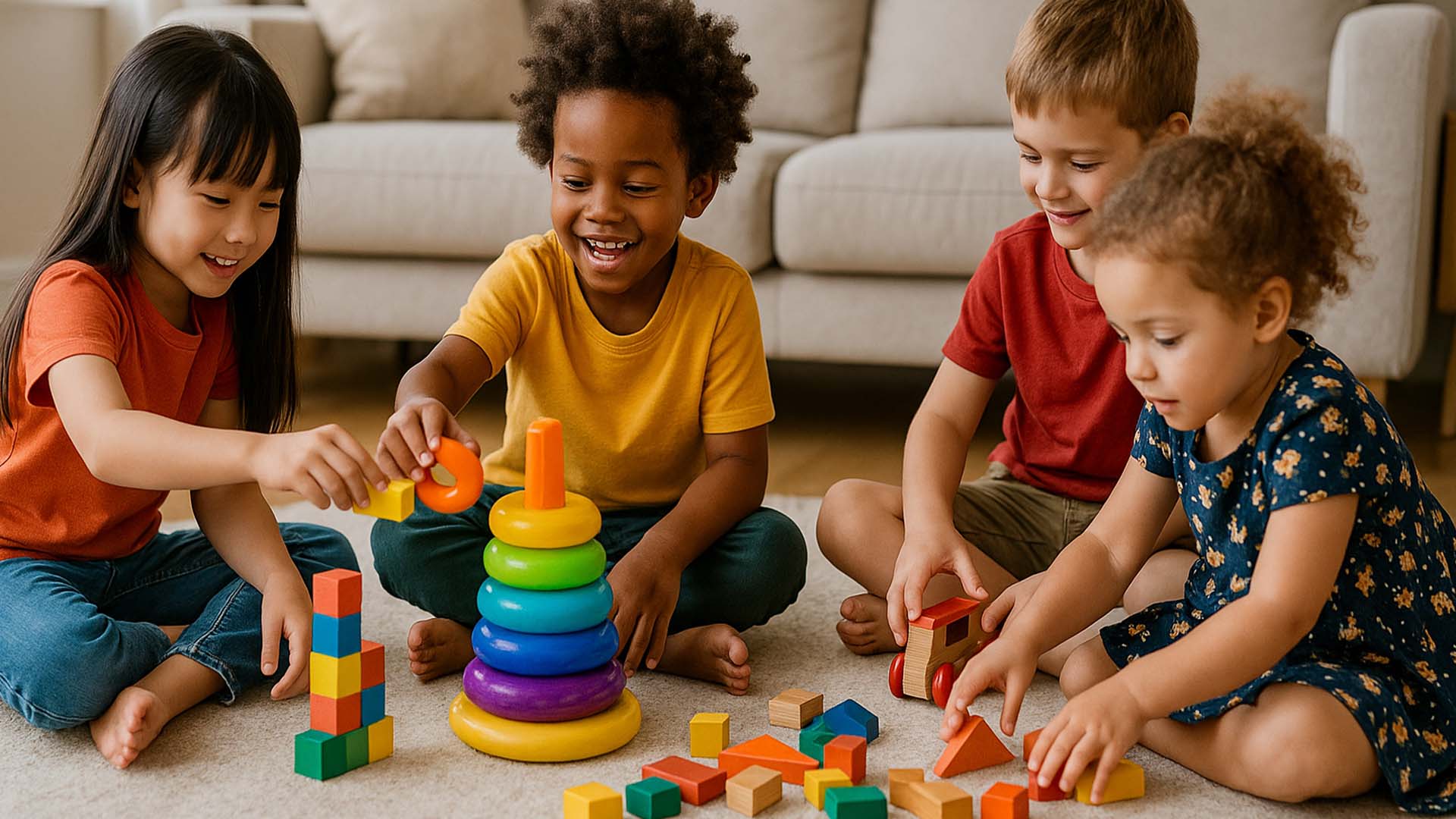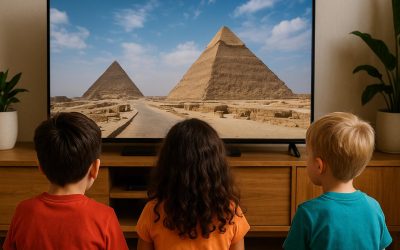In our busy world, it’s easy to see playtime as just a break from learning or chores. But for children, play is much more than just fun – it’s a vital part of their development. Through play, children learn, grow, and make sense of the world around them. This article will explore the incredible benefits of play for children of all ages and offer ideas for how parents can encourage more meaningful playtime.
What is Play?
Play is any activity that is enjoyable, voluntary, and intrinsically motivated [1]. It can be structured, like a board game, or unstructured, like building a fort in the living room. The key is that it’s driven by the child’s own curiosity and imagination, rather than external rewards or obligations.
The Many Benefits of Play
Play contributes to a child’s development in numerous ways:
1. Cognitive Development
Play helps children develop problem-solving skills, creativity, and critical thinking. When children engage in imaginative play, they create their own rules, scenarios, and solutions. Building with blocks or solving puzzles enhances their spatial reasoning and logical thinking [2].
2. Social and Emotional Development
Through play, children learn to share, cooperate, negotiate, and resolve conflicts. Group play teaches them about social cues, empathy, and how to interact with others. It also provides a safe space for children to express emotions, practice self-regulation, and build self-confidence [3].
3. Physical Development
Active play, such as running, jumping, and climbing, helps children develop gross motor skills, coordination, and balance. Fine motor skills are honed through activities like drawing, cutting, and manipulating small objects. Physical play is also crucial for maintaining a healthy weight and developing strong bones and muscles [4].
4. Language and Communication Skills
During play, children often engage in conversations, storytelling, and role-playing, which significantly boosts their vocabulary and communication skills. They learn to articulate their thoughts, listen to others, and understand different perspectives [5].
5. Stress Reduction
Play is a natural stress reliever for children. It allows them to release energy, express feelings, and escape from daily pressures. Unstructured play, in particular, can help children process experiences and emotions in a healthy way [6].
Encouraging Meaningful Playtime
1. Provide Opportunities for Unstructured Play
While organized activities have their place, make sure to leave plenty of time for free, unstructured play. This allows children to follow their own interests and develop their creativity without adult direction.
2. Create a Play-Friendly Environment
Offer a variety of age-appropriate toys and materials that encourage open-ended play, such as building blocks, art supplies, dress-up clothes, and outdoor equipment. Ensure a safe space where children can explore and experiment freely.
3. Join in the Fun (Sometimes!)
Participate in your child’s play when invited, but also know when to step back and let them lead. Your involvement can strengthen your bond and model positive play behaviors, but it’s important for children to also have independent play experiences.
4. Limit Screen Time
While digital play has its benefits, excessive screen time can displace other important forms of play. Encourage a balance between digital and traditional play to ensure holistic development [7].
5. Embrace Outdoor Play
Outdoor play offers unique benefits, including exposure to nature, fresh air, and opportunities for more vigorous physical activity. Encourage children to explore parks, backyards, and natural spaces.
Q&A
Q1: How much playtime should my child have each day?
A1: There’s no strict rule, but experts recommend that children have several hours of unstructured play daily, in addition to any structured activities. The key is to ensure a balance that allows for physical activity, creative expression, and social interaction [8].
Q2: What’s the difference between structured and unstructured play?
A2: Structured play has specific rules and goals, often led by an adult (e.g., a sports team, a board game). Unstructured play is child-led, spontaneous, and open-ended, allowing children to explore their own interests and imagination (e.g., building a fort, imaginative role-playing) [9].
Q3: My child prefers screens to playing. What can I do?
A3: Gradually introduce alternative play activities. Start by setting clear limits on screen time and offering engaging alternatives. Make playtime appealing by providing new materials or joining in initially. Sometimes, children just need a little nudge and inspiration to discover the joy of other forms of play [10].
Sources
[1] American Academy of Pediatrics. (2018). The Power of Play: A Pediatrician’s Prescription for Enhancing Development. https://pediatrics.aappublications.org/content/142/3/e20182058
[2] The National Association for the Education of Young Children (NAEYC). (n.d.). The Importance of Play. https://www.naeyc.org/our-work/for-families/importance-play
[3] Centers for Disease Control and Prevention (CDC). (n.d.). Positive Parenting Tips. https://www.cdc.gov/ncbddd/childdevelopment/positiveparenting/index.html
[4] Nemours KidsHealth. (n.d.). Why Kids Need to Play. https.://kidshealth.org/en/parents/play.html
[5] Scholastic. (n.d.). The Benefits of Play for Children’s Development. https://www.scholastic.com/parents/family-life/parent-child/benefits-play-childrens-development.html
[6] Psychology Today. (2012, March 12). The Importance of Play for All Ages. https://www.psychologytoday.com/us/blog/the-power-play/201203/the-importance-play-all-ages
[7] American Academy of Pediatrics. (n.d.). Screen Time Guidelines. https://www.healthychildren.org/English/media/Pages/default.aspx
[8] The Genius of Play. (n.d.). How Much Playtime Do Kids Need?. https://thegeniusofplay.org/benefits-of-play/how-much-playtime-do-kids-need/
[9] Early Childhood Education Journal. (2010). Structured and Unstructured Play: A Comparison of Their Effects on Young Children’s Development. https://link.springer.com/article/10.1007/s10643-010-0389-1
[10] Common Sense Media. (n.d.). How to Get Your Kids to Play More and Use Screens Less. https://www.commonsensemedia.org/articles/how-to-get-your-kids-to-play-more-and-use-screens-less








0 Comments